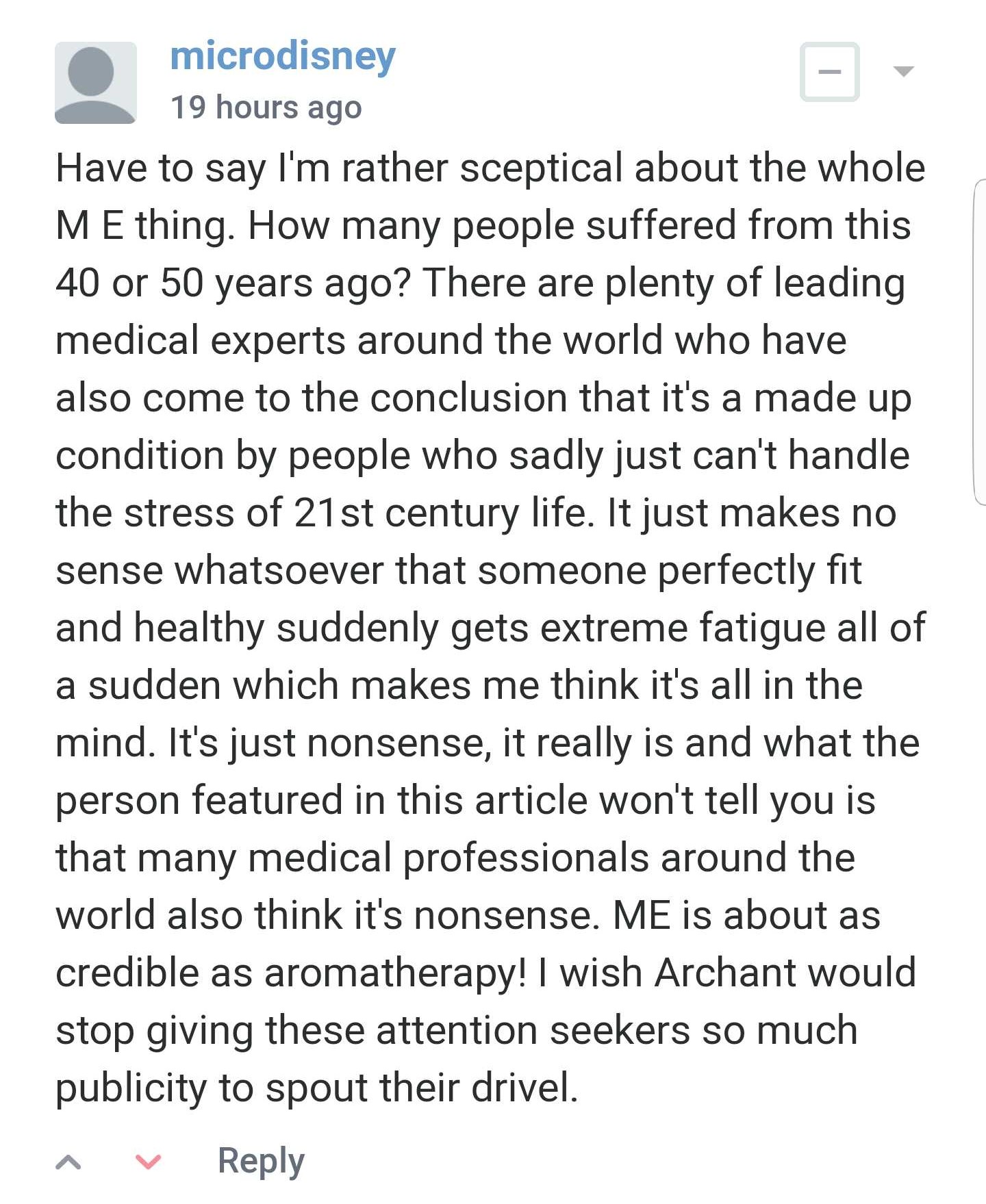I have been in my local paper twice recently raising awareness about myalgic encephalomyelitis (ME). Both times, spiteful comments have been left by members of the public stating:
“ME doesn’t exist.”
“It’s all in their heads.”
“You are just lazy.”
It’s a stigma we, the ME community, face on a daily basis. Why do people have such strong views about an illness they haven’t experienced and have no knowledge of? Why do strangers feel they can judge me when they haven’t lived my life? Do you really think I would choose to live my life from my bed, to be excluded from everything I love?
It’s upsetting in this day and age that people still deny ME exists, and just think we are lazy. I have all the motivation in the world, but my body isn’t able. Myalgic encephalomyelitis has been recognized as a neurological disease by the World Health Organization (WHO) since 1969, so why do so many people, including medical professionals, refuse to believe it exists? It’s estimated that 17 million people worldwide are affected by ME. Are 17 million people just lazy and seeking attention? Surely with all the evidence now available it’s no longer a question of belief; it’s a question of informed verse ignorant.
The following comment was left by someone calling themselves “Microdisney:”
“Have to say I’m rather skeptical about the whole ME thing. How many people suffered from this 40 or 50 years ago? There are plenty of leading medical experts around the world who have also come to the conclusion that it’s a made up condition by people who sadly just can’t handle the stress of 21st century life. It just makes no sense whatsoever that someone perfectly fit and healthy suddenly gets extreme fatigue all of a sudden which makes me think it’s all in the mind. It’s just nonsense, it really is and what the person featured in this article won’t tell you is that many medical professionals around the world also think it’s nonsense. ME is about as credible as aromatherapy! I wish Archant would stop giving these attention seekers so much publicity to spout their drivel.”

Where does this aggression towards people with ME stem from? When did we get labelled “attention seekers?” When did “ME bashing” become acceptable? Imagine this comment being left on an article about a cancer patient, imagine the uproar it would cause. But we, ME patients, are just expected to accept this and take it on the chin.
I have pondered these questions many times to try to understand the reasoning behind why so many people still refuse to believe ME exists. Is it because there’s no definitive test for ME? Is it because they cannot see my pain and torment? There’s a reason it’s called an invisible illness.
Is it because severely affected ME patients are hidden behind closed doors in darkened rooms? Is it because our symptoms can fluctuate quite dramatically, and some days we appear to function “normally?” Is it because historically, ME was seen as a psychological illness, and sadly in many cases, it still is – while people living with the condition were diagnosed with hysteria, or more recently conversion disorder? Is it because ME affects mainly women? Or is it just because some people are ignorant and refuse to believe, or take the time to educate themselves, on something they know nothing about?
I’m proud to say that, rather than let these comments upset me, I rallied the troops and together we educated the ignorant people behind the comments, we stood up for ourselves. Rather than getting emotional, we presented a rational argument and we proved the doubters wrong, and hopefully educated a few people along the way. I’m so proud to be a part of the ME community.
Lastly, I would like to send a message to the people who have judged me based on these articles:
I hope you never have to experience life living with ME. I hope no one close to you is affected by this devastating illness, and I hope someday you choose to leave your prejudices aside and spend some time educating yourself about ME. My hope is that through education you will learn compassion and understanding. We, the ME community, don’t want you sympathy – we just want to be heard and believed. We have spent so many years “missing,” forgotten and dismissed, ridiculed and judged – it’s now our time in the spotlight, our time to be believed, our time to be heard, our time for fair treatment and our time for action.
Getty Image by Black Brush

